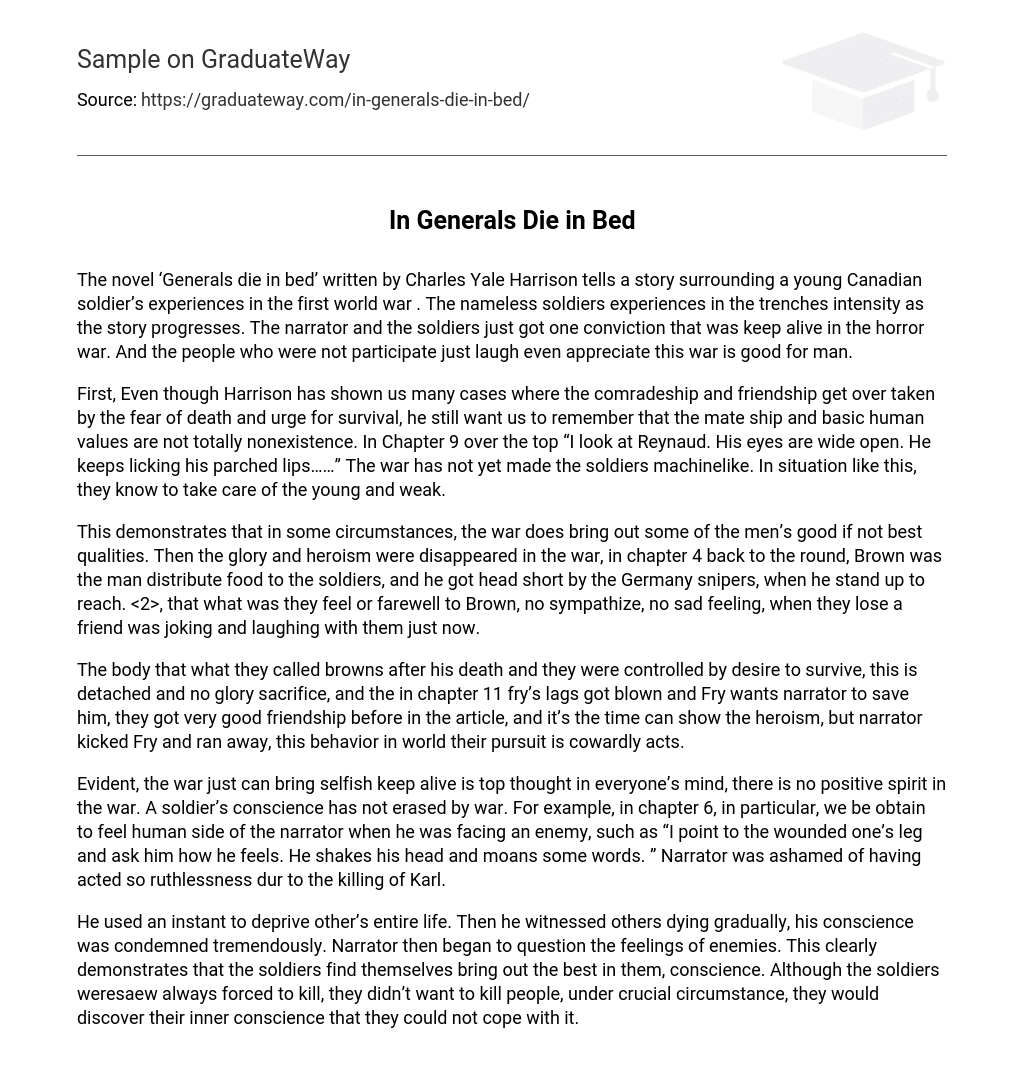The novel ‘Generals die in bed’ by Charles Yale Harrison recounts the story of a young Canadian soldier’s encounters during World War I. As the story unfolds, the unnamed soldier’s experiences in the trenches become increasingly intense. The narrator and his fellow soldiers share one resolute belief: to simply survive amidst the horrors of war. Meanwhile, those who are not directly involved in the conflict find amusement or even praise in the notion that war benefits man.
First, while Harrison has presented numerous instances where camaraderie and friendship are overshadowed by the dread of death and the desire to survive, he wants to remind us that companionship and fundamental human values are not completely absent. In Chapter 9, during the intense battle “over the top,” I observe Reynaud with his eyes wide open, continuously licking his dry lips….” Despite the ongoing war, the soldiers have not become emotionless machines. In situations such as this, they still possess the awareness to protect and support the vulnerable and inexperienced.
This shows that in certain situations, war can bring out the best qualities in men. However, in chapter 4, the glory and heroism of war disappeared. Brown, who had been distributing food to the soldiers, was shot in the head by a German sniper when he stood up to reach for something. The men’s reaction to Brown’s death was heartless – there was no sympathy or sadness. They were joking and laughing with him just moments before.
After his death, the body that was referred to as “browns” became controlled by the desire to survive. This detachment from glory and sacrifice is depicted in Chapter 11 when Fry’s legs are blown off and he asks the narrator to save him. Prior to this incident, they had a strong friendship. This is the moment where heroism can be displayed, however, the narrator chooses to kick Fry and run away. In the world they inhabit, this behavior is seen as cowardly acts.
It is clear that the war only fosters selfishness in order to survive, and this mentality prevails in everyone’s thoughts. There is a distinct lack of positive morale in the war. However, a soldier’s conscience remains intact despite the war’s influence. In chapter 6, the narrator’s humanity is evident when encountering an enemy, as demonstrated by his inquiry about the wounded soldier’s condition: “I point to the wounded one’s leg and ask him how he feels. He shakes his head and moans some words.” The narrator feels ashamed of his brutal actions, as they resulted in Karl’s death.
In a brief moment, he took away someone else’s entire existence. But as he saw others slowly fading away, his conscience was heavily burdened with condemnation. The speaker then started to ponder on the emotions of his enemies. This clearly illustrates how soldiers are able to reveal their true selves, their conscience, in the midst of conflict. Even though they were always compelled to end lives, they did not desire to harm others. In critical situations, they would uncover their inner conscience that they struggled to reconcile with.





